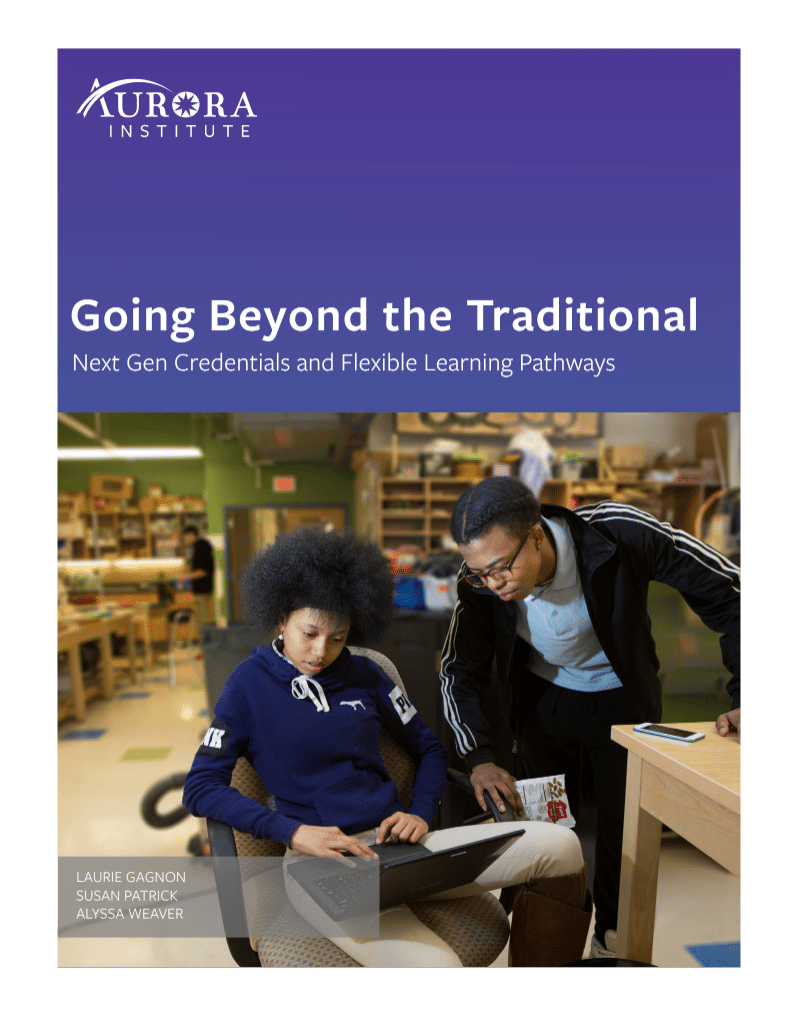Report
Going Beyond the Traditional: Next Gen Credentials and Flexible Learning Pathways

The new world of work demands not only academic knowledge and skills but also transferable skills such as communications, creativity, and collaboration—skills that are rarely captured formally. Meeting that demand will require a new approach to the high school diploma. The opportunity is ripe to redesign credentials to enable competency-based pathways and learning. The transcript for the next generation (“next gen”) of learning and work will better represent what individuals have actually learned, what they know, and what they can do. According to UNESCO (2023), next gen credentials will “record focused learning achievements. They will verify what learners know, understand, and can do. Learners will be assessed based on clearly defined standards and credits, badges or certificates awarded by a trusted provider. They have value and can also contribute to or complement other credentials, including through recognition of prior learning. They meet the standards required by relevant quality assurance.”
The goal of this report is to deepen state policy makers’ understanding of the changes needed to facilitate meaningful next gen credentials and advance state policy to support those changes. This includes building support to modernize education, opening pathways for learning and reskilling, and providing value for lifelong learning to both individuals and employers. Students, families, employers, and organizations focused on education and employment, as well as nations around the globe, are exploring how to ensure students receive a world-class education that builds knowledge and skills needed for the future. New models of credentialing knowledge, skills, and qualifications are emerging to help achieve this goal.